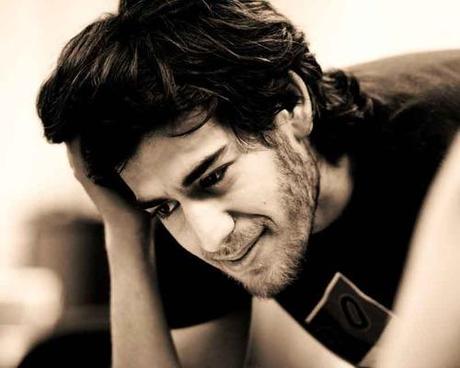
One of my most deep rooted beliefs is that everyone is equal, in terms of abilities. One person may be born smarter than another, for example, but the less smart person may be more intuitive, or better at coping with adversity. Our society, as are all societies, are rigged in such a way that certain people appear more successful — the rigging system has mostly do with social class. The more money you have, the more successful you appear — if you keep that money, your kids will be successful as well, because they will have access to the best schools and the best networks. A kid who goes to Ivy League college, for instance, is the smartest kid only a percentage of the time — mostly, kids that go to Ivy League schools come from a lot of money. That sounds incredibly naive, but it’s something that I’ve felt in my gut since I’ve been very little. Another deep rooted beliefs is that human beings are inherently good, rather than neutral or evil, which probably has to do with the fact that I was heavily, heavily steeped in Catholicism before I could even breathe.
I’m not sure why equality popped into my mind when I read Larissa MacFarquhar’s profile in the New Yorker on Aaron Swartz, a computer hacker and inventor who killed himself this past January, ostensibly because he was facing going to jail after hacking thousands of Jstor articles. I was vaguely aware of Swartz because after he died, a lot of people posted on the Internet about how he was doing a service for the “people,” or some shit, but had to die, while the big banks were allowed to commit fraud consequence free. It stunk, quite frankly, of bullshit.
On a side note, while I appreciate the New Yorker allowing MacFarquhar to write in her own voice, and while I also think she’s really smart and talented, her articles are kind of gigantic messes. I end up feeling frustrated, after reading them, because there is so much more I want to know, and so little to be gleaned, factually, amongst all of the dead end theories and rhythmic prose.
I think MacFarquhar, in her own way, produced an interesting profile of a young man who had a deep-rooted sense that he was superior to most human beings. His suicide, from what I gleaned from the article, was less about being crushed by the man, and more about being unwilling to face the very ordinary consequences of breaking the law. He didn’t want to be in the same camp as the average joe. He considered himself to be above it all. He considered himself to be something of a deity.
But what struck me most was the role that his upbringing shaped his conception of himself within the world, which his father, in interviews, seemed very aware of. If he didn’t feel like going to school, his parents didn’t force him to go. If he didn’t feel like vegetables — apparently he thought he was a “supertaster,” so he only ate things that were white and yellow — he was allowed to opt out of them.
“One effects of his upbringing was that he never internalized any notions about what he was supposed to be doing or not doing as a young person…he also never learned to do anything he didn’t want to do. ‘College is very important in that you’re forced to study stuff you’re not interested in,’ his father says. But he hated the bureaucracy of it, the dumb rules, the pointless assignments. ‘He just rejected that. It was like getting him to eat vegetables.’”
In another quote, from Lawrence Lessig: “He was freed of the discipling experiences of life. His parents go him out of school early, which was great because it allowed him to become somebody who wasn’t the product of puberty in a public school. But it was bad in the sense that it gave him a confidence about his own judgment, which is dangerous.”
He wasn’t that at all. He was a smart kid who, in the end, did something almost childishly selfish. It struck me, reading it, that Swartz’s feeling of being excused from the prosaic merely by virtue of the fact that he was intelligent or talented is the problem of much of my generation. We inherently believe, when we receive Ivy League degrees and great jobs and lots of accolades for our projects that we are better than other people. And that, as Lessig says, is a dangerous position to be in.
Fortunately, I come from a fucking crazy family, so I never thought that I was particularly special, even though I was good at a few things, but I did, thanks to my mother, think that I was ordinary looking, of normal abilities, genetically predisposed to mental illness, an alcoholic, anemic, and that no one would ever come to my funeral. I also, despite having a privileged background, had to work my ass off. Working enforced my belief in equality even more deeply — there’s nothing like babysitting for a kid who had the exact same upbringing as you for a living that makes you realize how easily you fit the opposite role you once thought you were superior to.
Swartz never had that wake-up call. Perhaps he might have killed himself anyway, if he suffered from severe depression. Or perhaps being forced to do things even if he thought he was above them might have grounded him enough in this world that he stayed here. Either way, this is probably a stupid fucking theory, but I wanted to write it to somebody.
